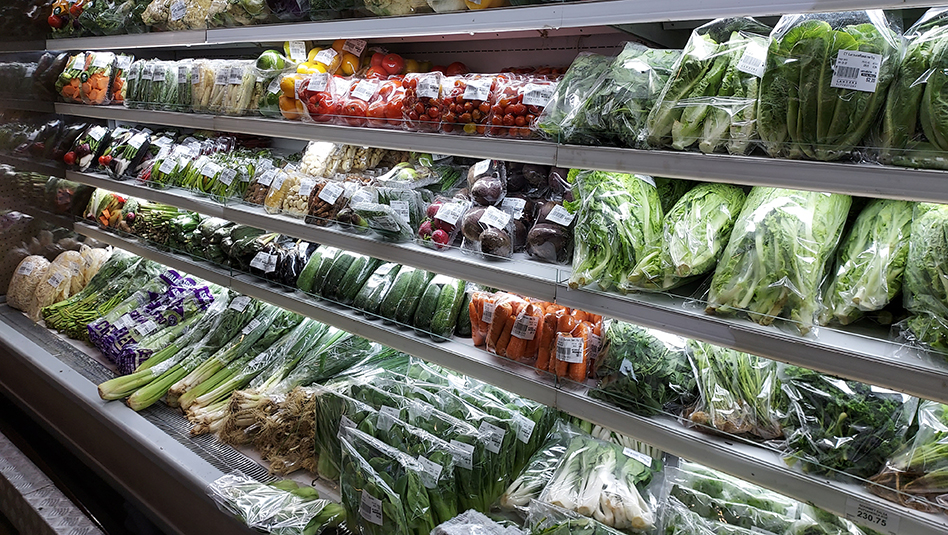Credit Rating: Baa1 / BBB+ / BBB+
Read this content. Log in or sign up.
If you are an investor with us, log in first to your Metrobank Wealth Manager account.
If you are not yet a client, we can help you by clicking the SIGN UP button.

Fundamental View
AS OF 18 Jun 2024Siam Commercial Bank (SCBTB; Baa1(stb)/BBB(stb)/BBB(stb)) is seen as a sound and profitable bank. It has a slight focus on the retail segment and targets to increase margins by growing personal unsecured lending. Recent credit costs have been elevated due to the retail exposure.
The capital buffer is strong with a CET1 ratio of 17.4% at the Holdco (SCB X) level and 17.2% at the Bank level at Mar-24. It announced a major business overhaul in September 2021 to establish a new parent company called SCB X to segregate the group’s core banking services from its new fintech and digital businesses and to enable greater flexibility and independence.
Business Description
AS OF 18 Jun 2024- Siam Commercial Bank was founded as the "Book Club" in 1904. In 1907, it started operating as a commercial bank and was renamed as "The Siam Commercial Bank". It completed its IPO on the Stock Exchange of Thailand in 1976.
- The bank is 23.58% owned by the King of Thailand, and a further 23.32% is owned by the Vayupak Fund 1, which is controlled by the government.
- SCB is the fourth largest Thai bank by assets and is known for its robust retail franchise.
- Its loan profile was 36% corporate, 17% SME, and 48% retail as of end-March 2024.
Risk & Catalysts
AS OF 18 Jun 2024The bank’s new strategic direction is sensible given limited domestic growth opportunities, but it comes with execution risk since the fintech and platform space are new to SCB, as well as higher credit costs. However, we take comfort in the ringfencing of the bank unit (SCB) from the Group’s riskier business units, and capital support to the Gen 2/3 businesses is subject to a minimum 16% CET1 ratio being maintained at the bank.
High household debt and challenged SMEs remain as longstanding issues in Thailand, but SCB X’s higher NIM and low-to-mid 40%s cost-income ratio provide comfortable room to absorb its higher credit costs and maintain a similar level of returns as peers.
SCB X has given a stronger FY24 NIM guidance than peers, supported by a strong deposit franchise and a growth focus on higher yielding retail loans. Recent guidance from authorities to reduce borrowing rates for vulnerable pockets of SME and retail customers and improve their lending access however present some headwind.
Key Metrics
AS OF 18 Jun 2024| THB mn | FY20 | FY21 | FY22 | FY23 | 1Q24 |
|---|---|---|---|---|---|
| PPP ROA | 2.58% | 2.63% | 2.50% | 2.88% | 2.91% |
| ROA | 0.9% | 1.1% | 1.1% | 1.3% | 1.3% |
| ROE | 6.7% | 8.4% | 8.3% | 9.3% | 9.3% |
| Equity/Assets | 12.6% | 13.4% | 13.5% | 14.1% | 14.5% |
| CET1 Ratio | 17.2% | 17.6% | 17.7% | 17.6% | 17.4% |
| Reported NPL ratio | 3.68% | 3.79% | 3.34% | 3.44% | 3.52% |
| Provisions/Loans | 2.14% | 1.84% | 1.45% | 1.82% | 1.67% |
| Gross LDR | 93% | 93% | 93% | 99% | 102% |
| Liquidity Coverage Ratio | 188% | 202% | 216% | n/m | n/m |
CreditSights View
AS OF 23 Apr 2024SCB is the 4th largest bank in Thailand and has a leading retail franchise. Asset quality during COVID was poor. It created a new HoldCo structure (SCBX) in 2022 to shift digital units and unsecured retail loans outside the bank, and pledged a >16% CET1 ratio at SCB. The BOT has also ringfenced SCB which further reduces the risk for the SCBTB bonds. However, the COVID Blue scheme book still sits within SCB and is the highest % of loans among peers (12% at 4Q23). We are slightly cautious about credit costs that may arise from this book. FY24 credit costs are guided to be slightly lower than FY23’s elevated levels, but they can be comfortably absorbed as we expect the NIM to be most resilient among peers this year, and FY23 returns led peers despite the high credit costs.
Recommendation Reviewed: April 23, 2024
Recommendation Changed: January 25, 2023
Who We Recommend


How may we help you?
Search topics about wealth insights and investments.Read this content. Log in or sign up.
If you are an investor with us, log in first to your Metrobank Wealth Manager account.
If you are not yet a client, we can help you by clicking the SIGN UP button.

Fundamental View
AS OF 18 Jun 2024Kasikornbank (KBANK; Baa1(stb)/BBB(stb)/BBB(stb)) is a historically sound and profitable bank.
Capitalisation is strong and the bank has among the highest CASA ratios in the banking sector. However, asset quality took a surprise turn for the worse in 4Q22 due to its larger SME exposure, and credit costs remain elevated.
Margins are leading among the Thai banks we cover as a result of its strong SME franchise, but the NIM has been falling steadily over the past 5 years as a result of strong competition. Rising base rates in 2023 have provided a boost, but the bank is now focusing growth on the safer but lower yielding segments to diversify its exposure.
Business Description
AS OF 18 Jun 2024- KBank is currently the second largest bank in Thailand. It briefly was the largest from 2018 until mid-2020, upon which Bangkok Bank completed its acquisition of Indonesia's Bank Permata and took its place.
- KBank's history can be traced back to 1945 when it was first established as Thai Farmers Bank. It was listed on the Stock Exchange of Thailand in 1976 and changed its name to Kasikornbank in 2003.
- As of end-March 2024, the bank's loan mix by segment consists of 38% corporate, 28% SME, 27% retail and 7% others.
- KBank is known for its strong SME franchise. Its focus industries in SME are construction, construction materials, food & beverage, and hardware.
- It partially owns a life insurance company, Muang Thai Life.
Risk & Catalysts
AS OF 18 Jun 2024High household debt and challenged SMEs remain longstanding issues in Thailand, but KBANK’s higher NIM and low-40%s cost-income ratio provide comfortable room to absorb its higher credit costs and maintain a similar level of returns as peers.
Loan growth has been middling across the Thai banks due to a focus on quality given elevated household debt and challenged SMEs, and a larger and prolonged balance sheet cleanup at KBANK which is slated to be completed by YE24.
KBANK expects to be able to maintain a flat FY24 NIM even as peak NIMs have been hit in 4Q23, supported by its higher CASA funding mix, as well as larger retail and SME loan book should rate cuts come through this year. However, its continued pivot away from the higher yielding unsecured retail and SME segments and recent guidance from authorities to reduce borrowing rates for vulnerable pockets of SME and retail customers and improve their lending access present some headwind.
Key Metrics
AS OF 18 Jun 2024| THB mn | FY20 | FY21 | FY22 | FY23 | 1Q24 |
|---|---|---|---|---|---|
| PPP ROA | 2.44% | 2.38% | 2.36% | 2.52% | 2.74% |
| ROA | 0.85% | 0.98% | 0.86% | 0.99% | 1.25% |
| ROAE | 7.0% | 8.3% | 7.3% | 8.2% | 10.0% |
| Equity / Assets | 13.4% | 13.1% | 13.4% | 13.9% | 14.3% |
| CET1 Ratio | 15.5% | 15.5% | 15.9% | 16.5% | 16.5% |
| Gross NPL ratio | 3.93% | 3.76% | 3.19% | 3.19% | 3.19% |
| Provisions / Loans | 2.05% | 1.73% | 2.11% | 2.08% | 1.89% |
| Gross LDR | 96% | 93% | 91% | 92% | 91% |
| Liquidity Coverage Ratio | 161% | 174% | 164% | n/m | n/m |
CreditSights View
AS OF 23 Apr 2024Kasikornbank is the 2nd largest bank in Thailand. We were cautious about its one third loan book exposure to SMEs given their challenges which were exacerbated by COVID, but have liked the bank’s high NIM, strong capital, and ability to grow in tough times. Credit costs spiked in 4Q22 mainly from the SME book and high yield small ticket lending. The bank is doing cleanups in FY23 and FY24, and has switched to focusing growth on the safer segments which will weigh on the NIM. FY24 credit costs will remain fairly elevated (guided at 175-195 bp) given the larger SME and Blue scheme book, but we expect the NIM to be more resilient than peers. Credit costs can thus be comfortably absorbed, but at the expense of losing its profitability lead over some of its Thai bank peers.
Recommendation Reviewed: April 23, 2024
Recommendation Changed: June 09, 2023
Who We Recommend









 DOWNLOAD
DOWNLOAD




